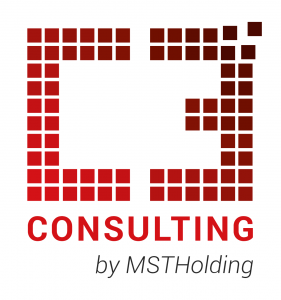In the automotive industry, customer service is a fundamental pillar that directly influences brand perception and consumer loyalty. Contact centers, as key points of interaction, require highly trained teams to provide a service that not only resolves inquiries but also enhances the customer experience. In this context, specialized training becomes a decisive factor for success.
The Uniqueness of the Automotive Contact Center
Unlike other sectors, in the automotive industry, contact centers play a role that goes beyond simple phone support. They are the first point of contact for many customers on their journey to purchasing a vehicle, which carries significant responsibility in building trust and customer satisfaction.
Additionally, the technical complexity of products and the constant technological evolution of the sector require agents to possess deep and up-to-date knowledge. It’s not just about answering calls; it’s about managing interactions that can close a sale, activate a business opportunity, or recover a dissatisfied customer.
What is Expected from an Agent in the Automotive Sector?
For automotive contact center agents to provide quality service, their training should cover several areas:
- Technical Knowledge of the Product
Customers expect precise answers about vehicle details: differences between versions, hybrid or electric system features, connectivity options, safety elements… It’s essential that the agent can speak confidently.
In today’s context, where 44% of Spanish consumers are considering switching to an electric vehicle for their next purchase (Deloitte, 2024), knowledge about autonomy, charging points, and incentive policies is key. - Commercial Skills
Many incoming contacts have commercial potential. Good training enables the agent to identify opportunities, argue value, and direct interest to the appropriate point of sale.
According to McKinsey, well-trained teams can increase lead conversion rates by more than 20%. The key lies in knowing when to schedule an appointment, when to escalate to an advisor, or how to retain a customer. - After-Sales Management
The customer relationship with the brand does not end after the purchase. The after-sales experience largely determines loyalty. The contact center must be prepared to manage maintenance, review notifications, warranty inquiries, or technical issues with agility and clarity. - Empathy and Emotional Management
Critical moments — a breakdown, a delay, a complaint — require agents with high emotional capacity. Knowing how to empathize, contain, and convey commitment is as important as providing the correct response.
The Real Impact of Training: Data and Trends
As recognized, contact centers with continuous training plans have a 27% lower turnover rate. Moreover, 68% of trained agents feel more confident and motivated.
In the automotive sector, losing a lead in customer service is losing a potential sale. A poorly managed interaction can lead to a loss of trust or a customer switching brands.
Consulting C3’s Approach: Practical, Personalized, Results-Oriented Training
At Consulting C3, we have been helping automotive companies improve their customer service processes for years. Our experience has allowed us to develop a unique training approach focused on three pillars:
- Initial Diagnosis and Defining Training Pathways
Before training, we analyze metrics, listen to interactions, and design tailored training paths for different profiles (pre-sales, post-sales, technical-sales, etc.).
Example: An electric vehicle leasing brand discovered that 32% of failed calls were due to a lack of knowledge about home charging. A specific module was developed to address this issue in just a few weeks. - Experiential Training and Case Simulation
Our methodology is based on role-plays, listening, analyzing real calls, and evaluating indicators such as FCR, NPS, or conversion rate. This way, learning becomes actionable from day one. - Continuous Reinforcement and Updates
We design periodic training modules adapted to campaigns, launches, or regulatory changes. This ensures the team is always prepared without losing operational efficiency.
Success Stories with Impact
One of our clients reduced phone abandonment by 18% after implementing a training plan with Consulting C3. Another improved their effective appointment rate by 21% thanks to specific objection handling training.
In a review campaign, customer satisfaction increased from 7.2 to 8.6 out of 10, simply by adjusting the script, response times, and agents’ attitudes.
Customer Service and Retention: Two Sides of the Same Coin
As we know, increasing retention by just 5% can increase profits by between 25% and 95%. The experience with the contact center is key for the customer to repeat, recommend, and trust.
Today’s consumer demands omnichannel, immediacy, and personalization. Only a well-trained agent can meet these demands.Conclusion
Training in automotive contact centers cannot be generic or occasional. It must be aligned with the product, the customer, and the brand’s strategy. It must be technical, emotional, commercial, and operational.
At Consulting C3, we view training as a lever for transformation. We train to improve metrics, convert more, retain better, and build strong relationships between brands and customers.
Because, in this sector, every conversation counts. And a well-prepared agent makes the difference.




